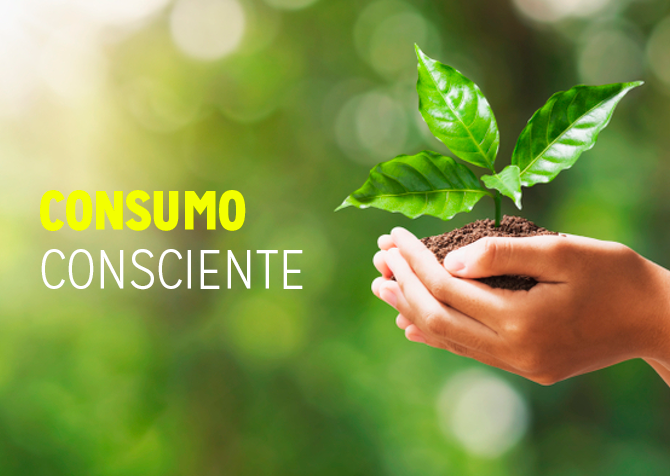Como consumir de forma consciente contribui com o futuro do planeta

Em um mês que alia o “Dia do Consumidor” e o “Dia Mundial da Água”, refletir sobre como as nossas ações como consumidores impactam diretamente no meio ambiente, inclusive na economia de água, contribui para construirmos um futuro mais sustentável.
O primeiro passo, portanto, é entender que enquanto consumidores, nosso comportamento gera impacto no planeta. Ao comprarmos e descartarmos em excesso, estamos utilizando de forma insustentável os recursos naturais, aumentando o desperdício e produzindo ainda mais lixo.
Para reverter essa situação que pode causar o esgotamento do meio ambiente, surge o consumo consciente. Segundo o Ministério do Meio Ambiente, trata-se de “uma contribuição voluntária, cotidiana e solidária para garantir a sustentabilidade da vida no planeta”. Em outras palavras, significa refletir antes de cada compra, realizando-as com consciência.
Repensar o consumo pode impactar também na redução do consumo de água. Um exemplo está na indústria da moda, a segunda mais poluente do planeta. Para a produção de uma calça jeans, estima-se que, em média, são gastos 5.196 litros de água, divididos em todas as fases de sua produção.
Ao comprar uma calça jeans em um brechó, doar sua roupa antiga ou mesmo transformá-la em um novo produto, você estará contribuindo com a moda circular. Aumentando a durabilidade das peças, reduzimos a necessidade da produção de novas peças, ou seja, economizamos cada vez mais água. Pequenas ações que podem contribuir com um futuro mais sustentável.
Para ajudar, listamos algumas ações importantes para o consumo consciente:
Planeje-se antes de fazer as compras, priorizando produtores locais;
Compre produtos duráveis, que não serão descartáveis assim que a “moda” passar;
Doe ou transforme as suas roupas, customizar é sempre uma opção para criar novidades a partir de algo antigo;
Reutilize embalagens plásticas e sacolas das suas compras;
Consuma apenas o necessário.
Com estas pequenas ações contribuimos para a construção de um futuro mais sustentável! Faça a sua parte :)


